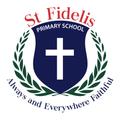Parent Code of Conduct

POSITIVE PARENT PARTNERSHIPS
We have a wonderful school and a very supportive parent community and we value the positive and respectful relationships we have with all parents.
The school staff and the Parish Education Board, with support from the Catholic Education Commission of Victoria, have develop guidelines about Positive Parent Partnerships at St Fidelis' School.
1. Preamble
At St Fidelis’ Catholic Primary School we aim to provide an open, welcoming, inclusive and safe environment for all. We believe that parents are valuable contributors and participants in the life of our School. Our School Vision is about ‘valuing each other...’ and as a school we value respectful partnerships with all parents. We strongly believe in developing authentic relationships. Two values that are particularly relevant are:
Respect – we want our community to recognise and appreciate diversity, to value the contributions of others and to cooperate with and care for others.
Sense of community – we want our community to promote partnerships between all members of our community and to interact positively.
The conduct of school staff is regulated by the Victorian Institute of Teaching Code of Conduct for Teachers. Student conduct at St Fidelis’ School is supported by the teachers, the pedagogy and the physical environment and is based on deep respect for self, property and others.
This Parent Code of Conduct outlines the way in which our community requires all parents and family members to conduct themselves when visiting our school, participating in school activities and communicating with members of our school community (including students, school staff, other parents and visitors to our school).
2. Scope
This Code applies to all adults including parents, guardians, step-parents, grandparents, extended family, babysitters and any others while involved in activities or communication related to St Fidelis’ Catholic Primary School. For convenience, the term “parents” will be used throughout the document.
3. Other School Policies Relevant to Parent Conduct
Child Safety Policy
Grievances Policy
Working with Children Policy
4. Other Legislation Relevant to Parent Conduct
Working with Children Act Privacy Act
5. General principles that always apply (at the school, excursions and school events)
(a) Communication
Parents will use courteous and acceptable written and spoken language in all communications with students, staff and other parents and members of the school community. No profane, insulting, harassing, aggressive or otherwise offensive language may be used in person or online.
(b) Ethical Conduct
Parents will act in the best interests of all students, their families and staff members. They will not engage in malicious or judgemental gossip.
(c) Respect
We value our diverse community and respect the rights, religious beliefs and practices of individuals and their families. We respect points of view that are different from our own and all members of our community must refrain from actions and behaviour that constitutes harassment, discrimination or vilification.
6. When visiting St Fidelis Catholic Primary School
(a) The Victorian Schools Reference Guide item 4.16.2 requires visitors to the school during school hours to sign a visitors’ register located at the school office, so that their presence in the school is recorded in the event of an emergency.
(b) Parents will comply with all safety and emergency procedures in place at our School and in the event of an emergency while they are on school grounds they will follow the instructions given by any member of school staff.
(c) When attending any kind of school assembly or public meeting parents will listen respectfully, in the same manner required of students and staff, and will refrain from creating any inappropriate noise or disturbance during performances or speeches by students, staff or visitors.
(d) Parents will treat all visitors to our school with respect, including Members of Parliament
A parent may be asked to leave the classroom or school if:
(i) parental presence in the classroom or at the activity is disturbing or distracting to any student or teacher;
(ii) the parent is not in control of their emotions.
7. When communicating with school staff
(a) All school staff are entitled to a safe and happy work environment. This is in the best interest of our children as well as staff themselves. Parents should therefore ensure that their interactions with staff do not create unnecessary stress and anxiety.
(b) The priority for school staff is the welfare and education of all children in the school. School staff are therefore not required to respond to emails and telephone calls instantaneously. At St Fidelis’, our preference for communication is via face to face contact or a phone call. If you do need to email, please be aware that a response time for emails may be up to 3 working days. Responses are not expected outside normal working hours or during school holidays unless it is an emergency in which case you should email the principal: principal@sfmoreland.catholic.edu.au
Remember to respect staff personal time. Parents shouldn’t send emails outside of work hours and expect an immediate response.
Only send non-vital messages by this medium.
Don’t seek to discuss in detail your child’s academic progress, learning expectations, or behavioural issues via email. These are best addressed over the phone or in person.
(c) The time available for parents to meet with staff is limited and must be scheduled at a time that does not disrupt student learning and teacher preparation. Parents should be mindful of the teacher’s time, communicate the reason for the meeting and allow the teacher time to prepare, unless there is a genuine emergency that needs to be discussed.
8. When communicating with other parents
(a) Parents will respect the privacy of other parents’ email addresses and will not send unsolicited emails or “spam” to school parents or forward unsolicited emails or spam that they receive to other parents. Parents will not forward other parents’ email addresses without their permission. Parents provide their email address to the school in order to receive communications from the school about school related matters and their child. The school will not give out the email address of parents to other parents without permission.
(b) Parents who act as volunteers in the school for such things as Mother’s Day and Father’s Day stall organisers and so on, are valued volunteers who play a critical role in our community and commit a great deal of time for the benefit of all. Apart from the general principles that always apply, parents should be particularly sensitive about the manner in which they provide feedback and ask questions of hardworking volunteers.
9. When using social media
Parents are not permitted to create a website, blog, podcast, Facebook page, Instagram or Twitter account or any other social media in the name of the school without the written permission of the Principal. The name of the school and the names of staff, students and families should not be used on social media without permission of the Principal or parent.
10. When making a complaint
Parents have the right to raise issues and concerns related to the education of their child or school matters. Parents should ensure that they raise their issues and concerns with the right person and follow the correct communication channels. When making a complaint parents should refer to the School Grievances Policy, which is available on the School Website; and parents must follow the procedures outlined in this Policy. It is a breach of this Parent Code of Conduct to make a complaint in a way that is not consistent with the School Grievances Policy, especially when the complaint is about a teacher or member of school staff.
11. Consequences of a Breach of Parent Code of Conduct
Any parent, member of school staff or student may notify the Principal or Deputy Principal of a possible breach of the Parent Code of Conduct. The Principal or Deputy Principal will investigate the complaint and if satisfied that a breach has occurred:
(a) provide a first and final warning that a breach of the Code of Conduct has occurred and that a further breach will not be tolerated;
(b) determine whether a breach may be rectified by the parent making a private or public apology, depending on the circumstances, to an individual or group of individuals;
(c) where the breach concerns unacceptable behaviour on a visit to the school, issue a trespass warning to the parent, which, if the behaviour continues, may accelerate to a trespass notice requiring the parent to stay away from the school unless on the school grounds with the express permission of the Principal or Deputy Princ
